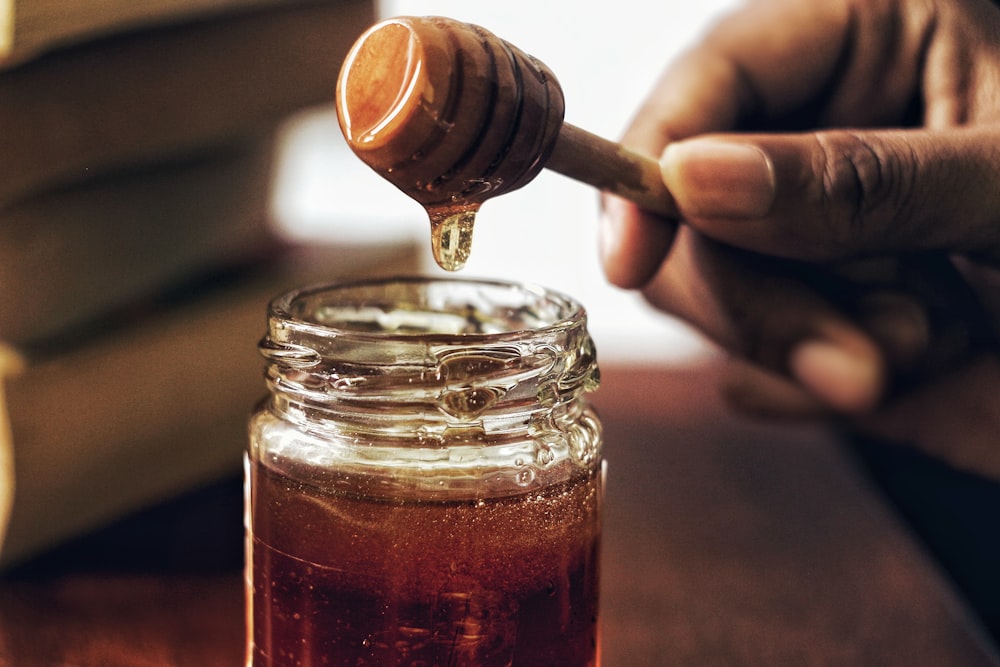Your 30s, 40s, 50s and Beyond - What You Should Know
Living in your andropause years and beyond - what you should know
As men get older, the hormone - testosterone declines gradually. Testosterone is a hormone produced by Leydig cells in the testes of a healthy male. It is responsible for offering men with typical male characteristics like – facial, beard and body hair patterns, deep voice, muscle mass. The testosterone levels decline in ageing men in comparison to the days of men's youth. The lower testosterone levels can spell fatigue, reduced energy, low libido, increased body fat and trigger other negative health effects that make healthy males feel beyond their actual age. Because these signs are somewhat vague and appear gradually with declining age, a diagnosis of men menopause – termed as andropause can be easily missed.
As men reach 30, there is a gradual decline in testosterone levels by about 10% (about 1% per year) every ten years. Men who experience the potential symptoms associated with declining testosterone levels complain of reduced sexual drive, increased irritability and mood swings.
For some men, this decline in testosterone levels results in a condition called andropause or hypogonadism (a syndrome associated with a reduction in sexual satisfaction), which has a myriad of symptoms, including – low sex drive, decreased bone density, erectile dysfunction, depression, low energy etc.
This article serves as a guide for ageing men highlighting the causes, symptoms and treatment options for male menopause – andropause. The write up also offers health tips for men who suffer from andropause and symptoms associated with male menopause.
The Facts About Andropause
- There is a 1% decline in testosterone levels every year in men older than 35
- The andropause process is so slow in men that most of them do not notice the transition at all.
- Andropause is not an illness. It is a normal thing in ageing men.
- Male menopause drastically affects sleep patterns impacting circadian rhythm and causing insomnia.
- Andropause causes severe depression in some men. Many men also experience memory loss, irritation, low morale and self-confidence.
- Some symptoms of andropause are not associated with declining age like – an existing health issue, alcoholism, poor diet and thyroid condition.
- Without treatment and men’s health supplements, bones become brittle and weak resulting in osteoporosis.
How is andropause different from menopause
In menopause, the hormone production of women plummets and stops completely in a relatively short period of time. Testosterone decline in men, however, happens over a period of many years. Additionally, the testes in men continue producing testosterone making agents, and males can reproduce well into old age.
Factors contributing to andropause other than natural occurrence in ageing men
- Loss of hypothalamic sensitivity
The primary factor in ageing is the abnormality or repairment of the men's reproductive homeostat (hypothalamic – pituitary – testicular axis), which results in the loss of hypothalamic sensitivity causing hypothalamic dysfunction to the hindering effects of testosterone.
- Testicular defect
When men age, there is a concurrent decreased Leydig cell’s response to Luteinizing Hormone (LH). It is likely due to lessening the sensitiveness of sex steroid receptors due to persistent and continued hyperstimulation by chronically elevated levels of Luteinizing Hormone (LH) (primarily) and FSH.
- Increased Sex Hormone Binding Globulin (SHBG) level
The Sex Hormone Binding Globulin (SHBG) levels increase with age along with the albumin level decrease with age. This andropause symptom results in a decline in bioavailable testosterone.
- Circadian rhythm dysfunction
Stress, diet and a disturbance of the sleep-wake cycle can result in a dramatic shift of the circadian rhythm of testosterone production.
Other causes include:
- Obesity (excessive weight gain)
- Alcohol use disorder (uncontrolled drinking of alcohol)
- Hepatic or liver cirrhosis (scarring)
- Genetic health disorders
- Diabetes mellitus (too much blood sugar in the blood)
- Chronic kidney disease (CKD)
- Malignancy (cancer) treatment
- Sleep apnea (a serious condition in which breathing repeatedly stops and starts
- HIV (human immunodeficiency virus) – AIDS (Acquired Immunodeficiency Syndrome)
- Anabolic steroid use (like testosterone, that masculinizes (sex, deep voice, hair))
- Metabolic disorders such as hemochromatosis (excessive iron levels in the body)
- Imbalances in men hormone levels
- Injury to testicles
- Gland disorders
- Long-term use of opioid medications (oxycodone, hydrocodone, and morphine)
- Emphysema (chronic lung scarring) or chronic bronchitis
- Health conditions that damage the hypothalamus and pituitary glands
Symptoms of andropause in men
Symptoms associated with male menopause include;
- Difficulty in getting an erection due to changes in testosterone levels
- Erections are not as strong as usual
- Depression
- Low libido
- Reduced body and beard hair
- Low energy
- Increased abdominal fat affecting men's healthy weight
- Mood swings and irritability
- Loss of strength or muscle mass
- Hot flashes and sweats
- Increased nervousness
- Mild unexplained anemia
- A decline in cognitive performance
- Reduced motivation and confidence
- Restlessness and difficulty concentrating
- Breast enlargement (gynecomastia)
- Generalized aches and pains
Common health risks and complications
Complications associated with andropause include:
- An increased risk of cardiovascular problems
- Osteoporosis (bones become weak and brittle)
- Infertility
- Decreased size of testicles
- Changes in the firmness of the testicles
Making the Diagnosis
Male menopause – andropause usually is not diagnosed by a doctor. However, the doctor examines various symptoms by physical examination. He asks several questions to investigate whether the symptoms match the conditions of andropause. Then a blood test is conducted to check the testosterone levels. If the levels are low, then the doctor will discuss several treatment options to reduce the symptoms. Several treatment options like Testosterone Replacement Therapy are helpful in reducing the symptoms and enhancing men's sexual health.
Some healthy tips for men
Many of the health issues and complications can be prevented if healthier lifestyle habits are adopted. Healthier choices also help in alleviating the symptoms of men menopause – andropause. Some healthy tips for men include:
- Controlled alcoholism (moderate drinking) should be adopted as alcohol is a risk factor for several health issues.
- Eat diet/foods that are rich in calcium (dairy, nuts, leafy greens and fish) and vitamin D (beef liver, cheese, egg yolk) to prevent bone loss and improve your bone health.
- Cigarette smoking should be completely stopped as it increases the risks of erectile dysfunction and prevents you from living a healthy sexual life.
- Alleviate any anxiety and stress, as it alters your physical and emotional well-being
- Maintain a healthy sleep schedule and give your body ample rest
- A low-fat, balanced diet is really helpful in preventing testosterone levels drop.
- Exercise regularly. Choose work out activities that enhances your mood and improves your physical and mental health condition. Weight training can be really helpful as it increases muscle mass and ensures normal testosterone levels.
Men need to take extra attention and care of their psychological and physical well-being. In comparison to women, men mostly hesitate or do not think it important to pay a visit to men's health clinics and see their doctor. But men need to understand that seeing their doctor for early detection of any potential disease (if any) is not a sign of any weakness; it reflects that they are concerned and consider health and their sexual life important.
Supplements that can be taken by men in 30s and above
Testosterone supplements that come in pill and capsule form include;
Zinc supplement
Ageing men who consume at least 30 milligrams of zinc per day experience elevated levels of free testosterone in their bodies.
Vitamin D
Vitamin D supplements increase testosterone levels and improve sperm quality in men.
D-Aspartic Acid
D-aspartic acid (DDA) supplements boost testosterone levels and improve erectile dysfunction in ageing men. These supplements change behaviour in the hypothalamus or pituitary gland, instructing and signalling the testicles in men to produce the hormone testosterone.
Tribulus Terrestris
The supplement does not boost testosterone. However, it does reduce symptoms associated with andropause like – elevation of energy levels, improved libido and enhancement of male sexual health.
Fenugreek
Fenugreek contains furostanolic saponins, which are compounds that elevate testosterone levels. Fenugreek supplements also help in reducing symptoms associated with low testosterone such as low sex drive or libido.
Ginger
Ginger supplements work magic for infertile men. The supplement serves as an androgenic compound and elevates testosterone levels.
DHEA
DHEA (dehydroepiandrosterone) is a "prohormone" -- a compound that can elevate the level of steroid hormones such as testosterone. DHEA supplements play a significant role in regulating the development and preservation of male characteristics.
Ashwagandha
Ashwagandha (Withania somnifera), also termed as Indian ginseng or winter cherry, increases testosterone levels and supercharges sperms. It is a promising supplement for improving fertility as it contains antioxidants that support the proper functioning of testicles in aged men.
Maca supplements
Maca supplements possess fertility-enhancing properties, increase sperm motility and virility. The supplements contain chemicals called "alkylamides," which nourish the endocrine system vital for testosterone production. The supplements also stimulate the body to produce and regulate testosterone.
Tongkat Ali
Tongkat Ali (scientific name - Eurycoma longifolia) elevate testosterone levels and alleviate ageing males' symptoms.
Yohimbine
This herb is really beneficial and is known to enhance plasma testosterone levels, boost sexual vigour and skeletal muscle hypertrophy, and reduce body fat.
Foods that increase testosterone naturally.
Adopting healthy food choices and eating foods that boost total testosterone levels is vital to control symptoms of andropause in men. Some of the healthy foods that boost testosterone levels include:
Tuna
Tuna fish is rich in vitamin D, low in calories and an excellent superfood for a healthy heart. Nutrients present in Tuna is able to bolster testosterone levels by up to 90%.
Onions
These are natural antioxidants that improve sperm quality, enhance male sexual health and protect male sperms from DNA damage. Onions are significantly effective in increasing testosterone levels in men.
Egg yolks
Egg yolks are rich in antioxidants and vitamin D that help men struggling with low testosterone levels. 1 -3 eggs every day are safe to eat to increase testosterone levels in case you do not have high cholesterol.
Oysters
One eight-ounce oyster comprises as much as 18 grams of protein and is adequate to meet your daily requirement of zinc. Packed with copper, zinc, magnesium, vitamin D, and selenium, it comprises amino acids that are beneficial in increasing testosterone production.
Grapes
These are vitamin-infused berries that boost testosterone levels. Grapes' skin is rich in resveratrol (a type of natural phenol), which is great for sperm health.
Honey
Honey may increase serum level of testosterone by increasing the production of luteinizing hormone (a hormone produced by gonadotropic cells), enhancing the viability of Leydig cells (interstitial cells of Leydig, present in the seminiferous tubules in the testicle), alleviating oxidative damage in Leydig cells, increasing StAR (steroidogenic acute regulatory protein) gene expression, and inhibiting aromatase activity in the testes.
Coffee
In men, consumption of caffeinated coffee increases total testosterone and reduces total and free estradiol (primary female hormone).
Beans
Beans (lima beans, kidney beans, white beans and lima beans) are rich in vitamin D, zinc, and few other vital nutrients which can help improve testosterone levels.
Potatoes
Potatoes (white potatoes, purple potatoes, sweet potatoes, russets, red potatoes, etc.) are rich in carbs that play an important role in increasing the levels of testosterone.
Low-fat milk
Low-fat or skim milk increases sperm volume and mobility.
Beetroot
Beetroot is rich in boron, which is an essential element in boosting testosterone production and also surges free testosterone levels. Ten grams of boron intake for at least five days is enough to increase free testosterone levels.
Extra virgin Olive Oil
Extra Virgin Olive Oil is rich in monosaturated fat and vitamin E, which boosts serum testosterone levels for healthy adult males. It is also helpful in elevating luteinizing hormone (a hormone produced by gonadotropic cells), which stimulates the testicular cells to produce the hormone testosterone.
Ginger
Ginger enhances testosterone production and improves male fertility by increasing the production of luteinizing hormone (a hormone produced by gonadotropic cells), elevating cholesterol levels in testes, and alleviating oxidative stress and lipid peroxidation in the testes.
Coconut oil
Coconut oil improves sexual ability in men and is helpful in stimulating testosterone secretion.
Circumstances in which testosterone supplementation is not advised
Testosterone supplementation is not recommended in the below explained circumstances:
- People suffering from chronic sleep disorders like sleep apnea (breathing repeatedly stops and starts)
- People suffering from cardiovascular problems
- Men who suffered a stroke or heart failure within the last six months
- People who have an increased RBC (red blood cell count)
- People who experience severe urinary tract infections and other symptoms
- Men who suffer from thrombophilia (tendency to form blood clots)
- Men who intend to become a father in the near-term
Treatment and Prevention
Men who are concerned and particular about their physical well-being consult their doctor on a regular basis and discuss testosterone replacement therapy options. It is particularly essential for men who experience andropause symptoms. The most common option is Testosterone transdermal patches, which can be kept applied 24 hours and can be easily patched on arm, abdomen, shoulder, back, legs and thighs. It is very convenient to do work out, swimming or bathing like normal with the patch kept applied. Most importantly, the testosterone patch is the only delivery method that mimics the natural daily rhythm of hormone testosterone production in males who are young and healthy.
Testosterone capsules and pills in the form of supplements are the least recommended as they can cause severe liver damage. Testosterone injections are another option. However, this option is painful and needs men's health clinic visits every 2 to 4 weeks, which may be inconvenient.
Testosterone replacement therapy is the most recommended treatment to help reduce symptoms of andropause. Testosterone supplements come in different forms like:
Testosterone transdermal patches - Men who wear a testosterone hormone patch receive the optimum hormone levels through the skin. It is usually applied every night at around 8.00 pm and left for twenty-four hours. The testosterone patch releases testosterone to be absorbed into the bloodstream.
Testosterone gel – The hormone gel comes in a packet of clear testosterone gel – AndroGel and Testim testosterone gel packets. These testosterone gels can be applied directly to the skin – mostly the arms. Another testosterone gel is Natesto gel that can be applied inside the nose. These gels get absorbed in the skin and increase testosterone levels.
While gels are also popular, they can be grubby and prohibitive. The hormone gel is applied once daily to clean, dry and undamaged or unbroken skin on the shoulders, upper arm (brachium), or abdomen. And must wait for some time (5-10 minutes) for the gel to dry prior to dressing and a further five to six hours before taking a shower or going for swimming. Some precautions are to be considered by men using testosterone gel since the gel gets easily absorbed. Anyone coming into direct contact with the medicated skin can get into trouble. The contact can be risky as it will result in masculine characteristics in the other person like – unwanted facial hair. So, it is important the medicated skin is thoroughly washed and cleaned with soap and water.
Capsules - Taken twice daily after meals, this is yet another option for testosterone replacement. Men with liver disease, impaired liver function, serious heart or kidney disease, or too much calcium in their blood should avoid testosterone capsules.
Testosterone hormone injections – These injections serve as a treatment to address sexual
(erectile) dysfunction in ageing men. These injections comprise of testosterone cypionate and testosterone enanthate. Other benefits of these injections include;
- Enhance mood
- Improve and elevate sperm count
- Increase libido
- Increase energy
- more energy
Testosterone implants - These can be implanted as pellets in the soft tissues. The body will gradually absorb the hormone testosterone into the bloodstream.
Testosterone is not recommended for men with existing health conditions like prostate cancer. Other conditions where testosterone is not recommended include; medications that cause thinning of blood, cardo-vascular health conditions, men with severe urinary symptoms from prostate enlargement, men with poor liver and kidney health. Men with such health conditions are not advised to go for testosterone supplements or any other testosterone therapy.
Why go to a men's health clinic?
There is an increased level of hesitancy in men to visit and see their doctor compared to women. However, men also need to give importance to their health as much! Men should pay regular visits to men's health clinic and see their health practitioner. This is really helpful in the prevention and early detection of health issues. In case there are some alarming and unusual symptoms and signs, the doctor needs to be consulted immediately without any delay.
One of the biggest health concerns for ageing men is prostate cancer. Men older than 50 are at greater risk of this type of cancer. So, men should not neglect their health, especially after a certain age. Men should regularly see their doctor and take a screening test for early diagnosis of any potential illness.
Andropause is not any sickness. It is a normal transition in a man's life that may make him a bit concerned and particular about his overall well-being. By adopting healthy food and lifestyle habits and taking appropriate preventive measures, all men can be at peace with their emotional and physical well-being
Apart from this, testosterone replacement in the blood is the highly recommended and common treatment for older men transitioning into the andropause phase. This treatment option offers relief from the symptoms and is beneficial in improving the quality of life. Food choices should include a diet rich in zinc, magnesium, vitamin D and proteins that boost testosterone levels. Lifestyle changes such as a minimum of 8 hours of quality sleep, increased exercise and stress reduction also help.
Outlook
Andropause is not any sickness. However, it is a condition that is associated with decreasing testosterone (male sex hormone) levels in men due to ageing. It is a normal process as men get older. However, the symptoms associated with male menopause can cause hardships like low libido, reduced energy, insomnia, and a decline in bone density, causing brittle bones and increasing the risk of conditions like osteoporosis. So, it becomes important to see the doctor and discuss the treatment options to treat the symptoms.

Male menopause – andropause is not usually diagnosed by doctors. A blood test is conducted to investigate the testosterone levels, and then the symptoms are matched with it. A healthy lifestyle, a good diet, regular workout, controlled alcoholism and no smoking are likely to boost the declining hormone levels and alleviate the physical symptoms of ageing in men. Treating underlying conditions associated with andropause can also alleviate the symptoms.









